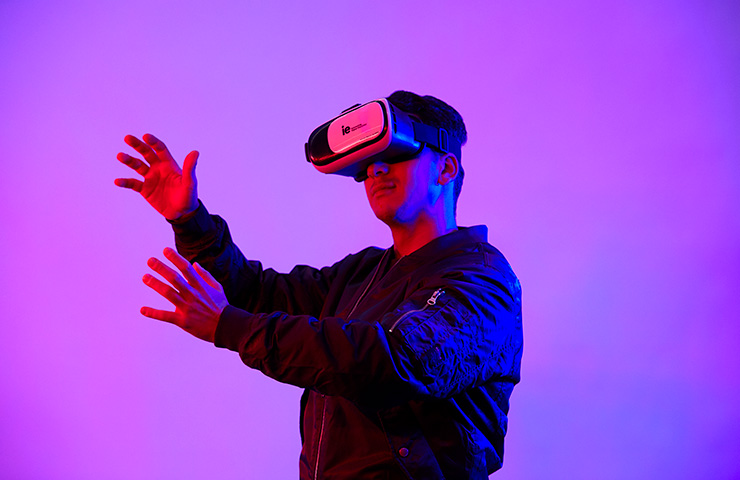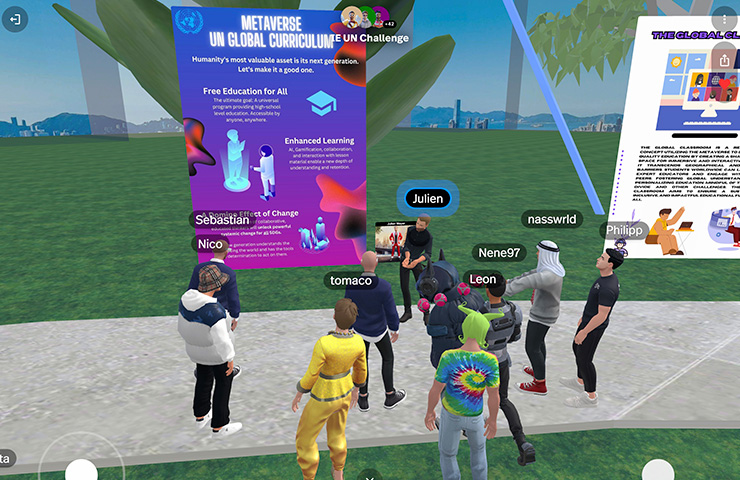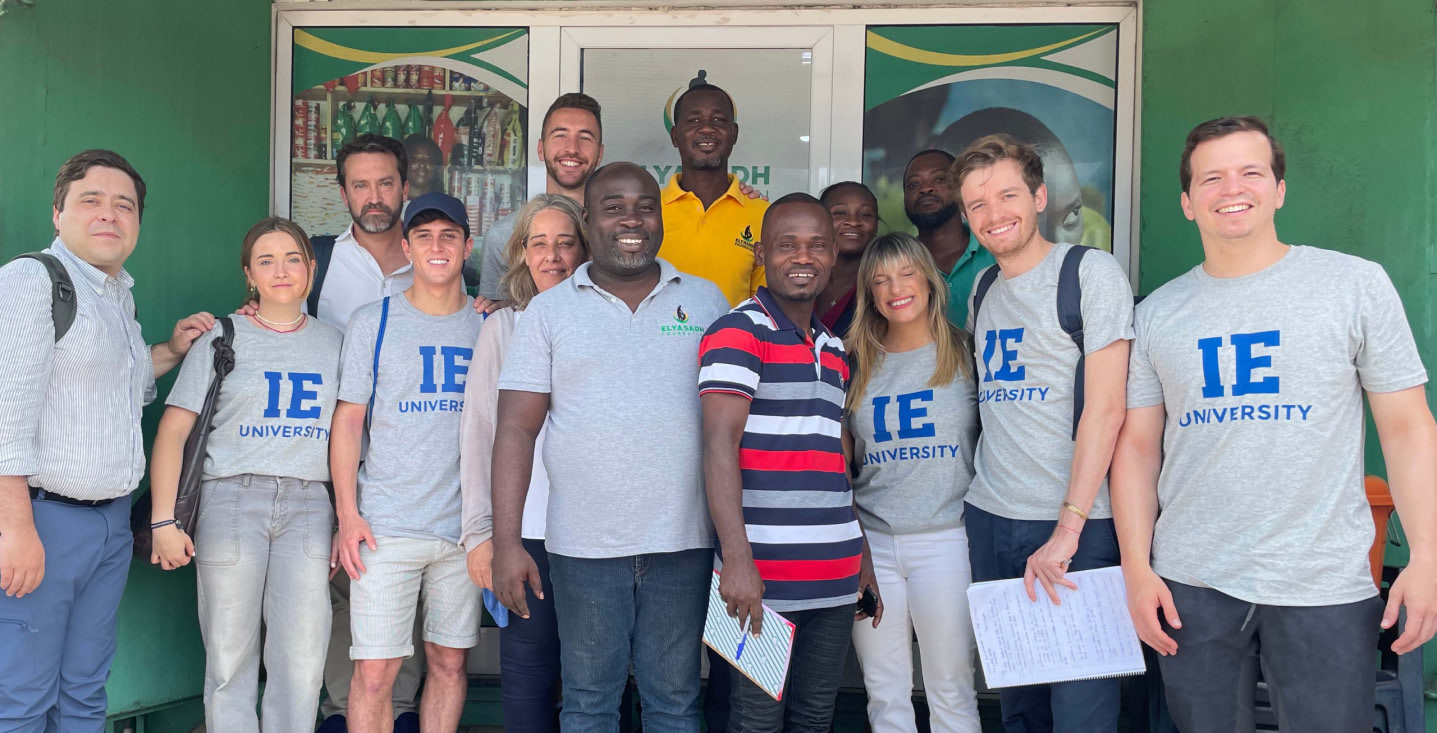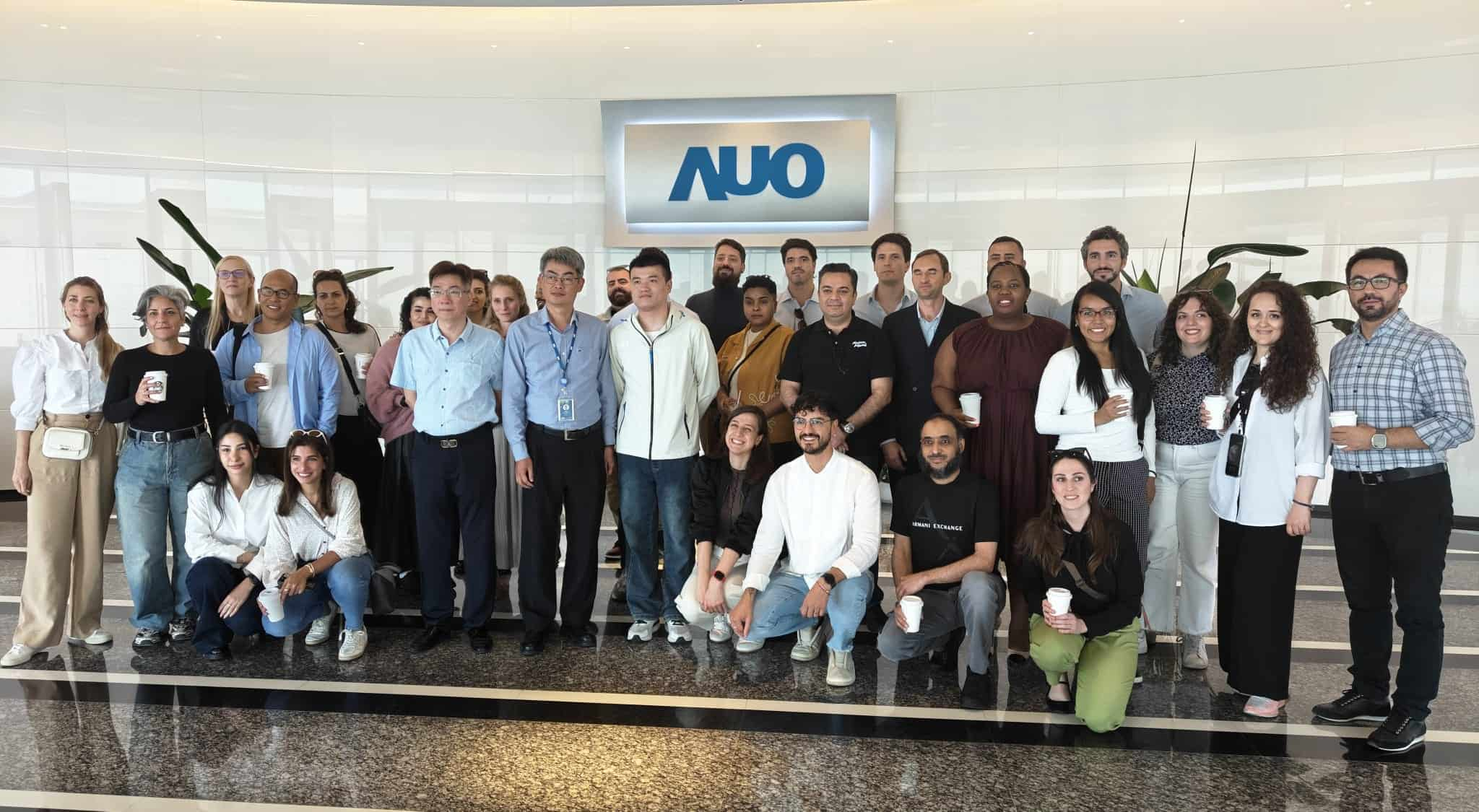18/07/2023
Bringing learning to life is a focal point for IE University’s approach to education. As an institution, we pride ourselves on providing students with an education that goes beyond the classroom, as well as practical opportunities to tackle real-life challenges and make an impact on society. To that end, it was a natural step for us to spearhead the use of a cutting-edge technological force like the metaverse.
At IE University, we are committed to innovation and experience. In fact, innovation flows through our digital and physical campuses, allowing us to naturally dive into the immersive realm. Across our program catalog, our academic offering is now being expanded through extended reality (XR), an emerging interface that acts as a bridge between physical and digital worlds including virtual reality (VR), mixed reality (MR) and augmented reality (AR). This expansion gives us the space to simulate real-world scenarios and provide students with unparalleled opportunities to enhance their knowledge, hone their skills and put their learnings into practice.
The IE UN Challenge
Putting students at the forefront of today’s technology, we’ve offered them the unique opportunity to participate in the IE UN Challenge, an immersive, XR-driven experience. Sebastien Veldman, adjunct professor and AR and metaverse specialist, designed this one-of-a-kind project as an individual insight assignment linked to the United Nations’ Sustainable Development Goals (SDGs):
“Students are tasked with investigating the details of the SDGs and understanding how innovative technologies like AR, VR and MR can help to achieve these goals.”

Over fifty students took part in the project, which saw them devise a range of original ideas and create digital posters in order to promote them. These posters were then exhibited in a virtual gallery on a metaverse platform called Spatial, which made them freely available to people in a 3D environment. The gallery opening was attended by students and faculty members and, as Sebastien highlights, “it was a lot of fun to virtually walk past the posters, get a better understanding of the students’ thoughts and see their pride in promoting their ideas.”
Influencing policy in practice
The work being carried out by the students at IE University is representative of how the metaverse is beginning to have a real-world impact on public policy. “Although SDGs are impactful and understandable, they can also feel so far away,” Veldman says. He cites the plight of coral reefs as a prime example, reflecting on how difficult it is for people who don’t live with the problems to truly understand them. This is precisely where the metaverse is helping effect change.
In his role with Accenture, Sebastian Veldman presented a brand new platform to the World Economic Forum in Davos called the Global Collaboration Village. The platform is designed as a virtual space for world leaders and top executives to come together for discussions on the world’s most pressing issues while being immersed in the environments concerned. “We can expose people to actual issues that are happening on that ocean floor,” he explains, hoping the platform’s compelling presentation will lead to more meaningful conversations.

“The metaverse has a big role to play, not only in inspiring but in exposing people to environments that can help them better understand the situation and how to act accordingly.”
Top five public policy projects
A deeper understanding naturally leads to greater empathy, which is a significant driver of social change. This is reflected in each of the student projects presented as part of the IE UN Challenge. With such a large number of inspiring ideas to choose from, selecting a top five was a daunting task—but one which Sebastien Veltman says he feels fortunate to have been a part of.
1. PeaceWalk in the Metaverse: A Digital Leap Towards Empathy and Global Unity Amidst the Ukrainian Crisis by Viktoriia Korytska
Viktoriia explores the potential of the metaverse in addressing SDG 16, which focuses on peace, justice and strong institutions. She draws on her personal experience of the conflict to address the new technology’s capabilities in fostering empathy and understanding and proposes metaverse-based applications to promote peace, improve governance and support affected individuals.
2. Building a More Inclusive Future: Combating Discrimination and Promoting Inclusion through the Metaverse by Agustina Ruiz
In this paper, Agustina discusses the potential of the metaverse on reducing inequalities, which is SDG 10. She proposes the development of an inclusive and accessible virtual world for people with disabilities in order to promote social inclusion and provide equal opportunities.
3. Manufacturing Mirrors: Bridging the Gap for Women in the Metaverse by Silvia Goyes
This project aims to establish a digital academy in the metaverse to train women from underdeveloped countries in manufacturing and engineering skills using digital twin technology. Silvia seeks to empower women, promote gender equality and provide a supportive and inclusive learning community.
4. Reimagining Economic Growth in the Metaverse: The Global Virtual Skill Exchange (GVSE) by Arya Khanna
Seeking to set up a global virtual skill exchange in the metaverse, Arya addresses the challenges of achieving SDG 8: promoting sustained, inclusive and sustainable economic growth, full and productive employment, and decent work for all.
5. Harnessing the Power of the Metaverse to Address Mental Health and Well-being by Aallesandro Ratti
Allesandro focuses on SDG 3, which aims to achieve good health and well-being. His initiativediscusses existing efforts in virtual reality therapy and support groups in dealing with the global mental health crisis. He also proposes virtual clinics, immersive health and wellness programs, and health data visualization as metaverse-based solutions.
In its inaugural year, the IE UN Challenge certainly proved an eye-opening experience for both teaching staff and students alike. Now, as part of IE University’s commitment to immersive experiences across all its programs, it is sure to become a regularly scheduled event. As it continues to grow over the coming years, increasing numbers of future leaders across a range of disciplines will come to understand the power of the metaverse to make a tangible impact on real people’s lives.








